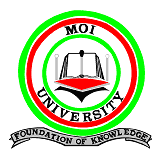Chemical and Process Engineering is concerned with the development and application of manufacturing processes in which chemical or certain physical changes are involved. These processes may usually be resolved into a co-ordinated series of unit operations and chemical processes.
The work of the chemical engineer is concerned primarily with the design, construction, and operation of equipment and plants in which these unit operations and processes are applied Chemistry, Physics, and Mathematics are the underlying sciences of Chemical & Process Engineering, and Economics is its guide in practice.
What does the Chemical & Process Engineer help produce?
The chemical industry is large (a major fraction of Kenyan gross national product), dynamic, and is constantly expanding.
In spite of the fact that an average Kenyan constantly uses chemical products, the work of the chemical & process engineer is relatively unknown since most chemical products are not direct consumer items. Some items such as gasoline, paint, paper, drugs, and foods are delivered to the consumer as manufactured, but soda ash, caustic soda, chlorine, and sulphuric acid, for example, seldom reach the consumer in their original form in spite of the fact that they are in the heavy chemical group. Soda ash is used in the manufacture of glass, pulp and paper, soaps, and water softeners; caustic soda is used to make rayon, explosives, foods, bleaching compounds, and soap, etc. Chemical engineers also participate in the production of materials which the general public never comes into contact with, such as radioactive substances, rocket fuels, and military explosives.
Chemical & Process Engineers may be involved in the design of a new plant, either for a pilot plant project or for a complete production line. Pilot plant studies predict how big the real plant should be so that the processes are developed as efficiently as possible. Also, the engineers use their design ingenuity to find ways of modifying an existing production line to improve safety, efficiency, prevent pollution, and do so in a cost-effective manner.
The activities of chemical & process engineers can be summarised as below:-
- Production
- Equipment process and plant design
- Research and development
- Management and planning
- Sales and marketing
- Process and quality control
- Environmental management
- Teaching and training
